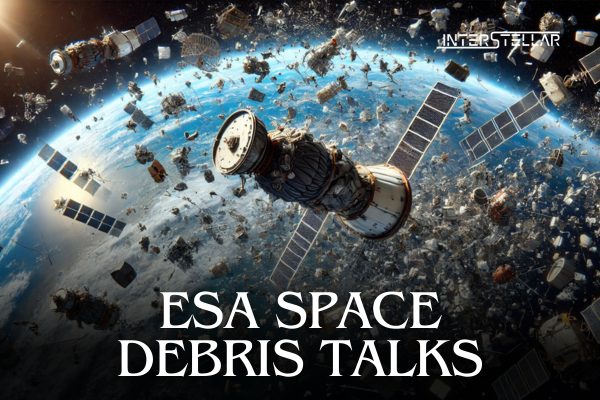ESA in Talks with SpaceX to Join Global Effort to Tackle Space Debris
The European Space Agency (ESA) is in discussions with SpaceX to join an international initiative aimed at reducing space debris, according to ESA Director General Josef Aschbacher. This move is part of ongoing efforts to tackle the growing issue of space junk, which poses a threat to active satellites and future space missions.
ESA’s Zero Debris Charter
ESA is leading a global effort to curb the creation of new space debris through its Zero Debris charter, which seeks to stop the generation of orbital junk by 2030. Currently, 110 countries and entities have signed up for the initiative. Aschbacher confirmed that SpaceX, responsible for about two-thirds of all active satellites in low Earth orbit (LEO), has yet to sign the charter but discussions are ongoing.
SpaceX’s Starlink constellation, consisting of over 6,300 satellites, makes the company a key player in the LEO satellite industry. The rapid expansion of satellite constellations, including new ventures from China and Amazon’s Kuiper constellation, highlights the increasing importance of debris management. Amazon has already joined the Zero Debris charter, Aschbacher noted.
The Growing Threat of Space Debris
The issue of space debris continues to worsen, with nearly 19,000 trackable pieces of space junk currently orbiting Earth. This debris includes inactive satellites, rocket bodies, and smaller fragments from past collisions or breakups. High-profile incidents, such as the 2007 destruction of a Chinese satellite and a 2009 collision between US and Russian spacecraft, significantly added to the growing cloud of debris.
While no international laws govern space debris, many space-faring nations and agencies are working on national rules and proposals to address the issue. ESA’s Zero Debris charter is a significant step in uniting global efforts, even though the agency is not a regulatory body. “We are a technical space agency, but the fact that we’ve gathered international support for this charter is very encouraging,” said Aschbacher.
SpaceX’s Role in Debris Management
SpaceX, under US Federal Communications Commission (FCC) regulations, is required to deorbit its Starlink satellites within five years of their end of service, ensuring they burn up in Earth’s atmosphere. While SpaceX is not yet a signatory to the Zero Debris charter, experts like Harvard astronomer Jonathan McDowell believe their participation would signal a major commitment to responsible space operations.
Despite this, SpaceX has previously criticised a US Federal Aviation Administration (FAA) report on falling debris risks as “deeply flawed,” according to SpaceNews.
Anti-Satellite Missile Tests and Debris
The issue of space debris is exacerbated by anti-satellite missile tests conducted by various countries. In August 2023, a Chinese rocket body broke apart after colliding with a piece of space debris, creating one of the largest new debris fields in recent history. NASA estimates that two significant past incidents — a 2007 Chinese missile test and a 2009 accidental collision between US and Russian satellites — increased the overall debris field by about 70%.
The Biden administration has pushed for a moratorium on anti-satellite missile tests, with several nations backing the initiative. However, neither Russia nor China have agreed to the moratorium, further complicating efforts to manage space debris on a global scale.





